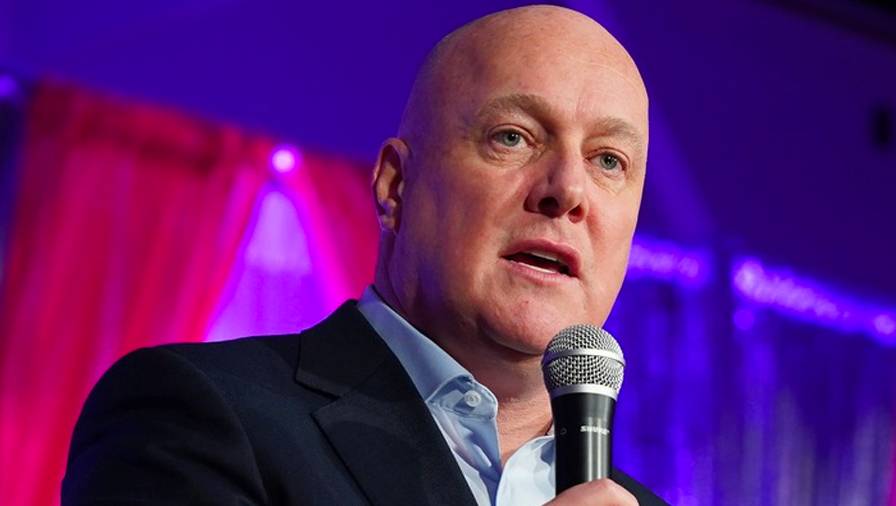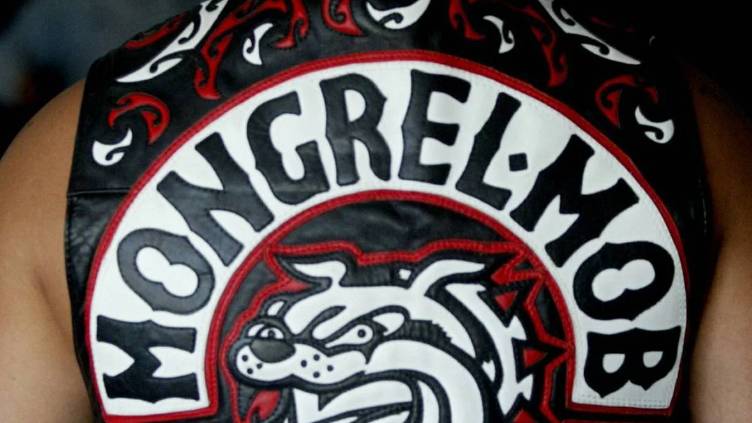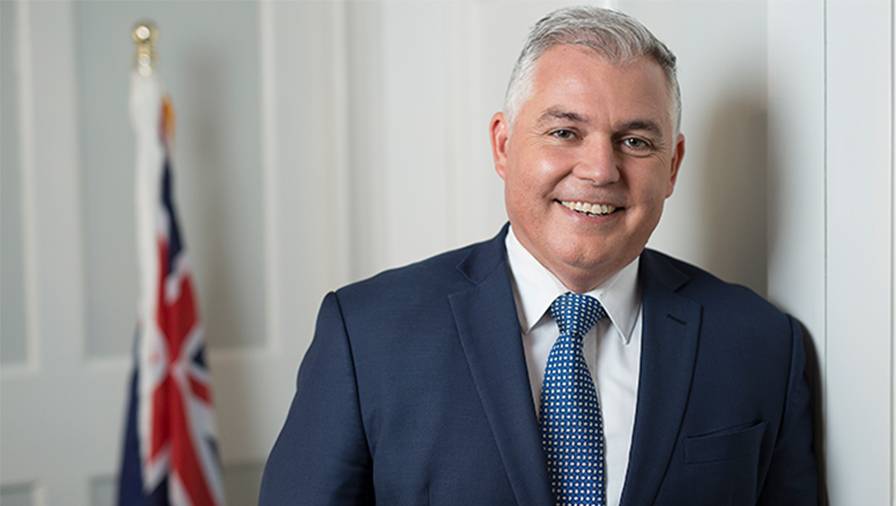

Treaty hikoi, gang patches, fiscal policy, delayed recovery
Shane Jones says tens of thousands protested about a bill that will never become law.
WATCH: NBR political editor Brent Edwards speaks with Simon Shepherd.


Shane Jones says tens of thousands protested about a bill that will never become law.
WATCH: NBR political editor Brent Edwards speaks with Simon Shepherd.
Unprecedented numbers marched on Parliament this week as part of the hikoi organised in opposition to the Treaty Principles Bill.
The estimate of the number involved kept going up, but it seems like there were more than 50,000 who took part in the final leg of the hikoi from Waitangi Park to Parliament. While many squeezed into Parliament grounds, many others filled the surrounding streets.
The architect of the bill, Act Party leader and Associate Justice Minister David Seymour, largely dismissed the hikoi, saying the vast majority of New Zealanders who supported the bill were at home or work. He said opponents of the bill would do better to read it.
New Zealand First deputy leader and government minister Shane Jones wrote in a column for Wellington’s The Post newspaper that there was an irony in the protest.
“Tens of thousands turned out to bellyache against a bill that will never pass,” Jones said.
He said whatever the Justice Select Committee came back with after considering the bill would not change New Zealand First’s position. The bill would not pass.
Prime Minister Christopher Luxon has repeated again this week the National Party would vote against the bill at its second reading.
Why then all the fuss?
Partly it is because the hikoi was about more than the bill.

New Zealand First deputy leader and government minister Shane Jones.
In a separate column in The Post, Treaty Negotiations Minister Paul Goldsmith said the Government was already addressing legitimate questions about the role of the Treaty in the country’s democracy by reasserting that healthcare should be delivered on the basis on need alone, by pushing back against Māori wards on local councils, by unwinding co-governance arrangements in core public services, and by overturning the reasoning behind the Court of Appeal’s ruling in the Marine and Coastal Area Act to restore a high test before customary marine title was awarded on parts of the coastline.
Goldsmith said it was also reviewing Treaty references in existing law to ensure they were clear about what Parliament meant or remove them if there was no clear reason for having them.
All those initiatives are ones that have provoked opposition from those who took part in and supported the hikoi.
But the Government could have avoided much of the controversy had it just dumped Act’s bill at the first reading.
The reason it did not is largely politics. Luxon explains it is the price of MMP, where National had to agree to something it did not want so as to reach a coalition deal with Act. By the same token, he says, Act did not get what it wanted because the bill will not be supported once it has been considered by the select committee.
Yet, politically, Act does get what it wants. It gets a public focus on the issue and its advocacy, which plays well with its supporters. Nor will it let the issue die once the bill is defeated in Parliament. It will likely campaign strongly on the issue until the next election to woo wavering National Party supporters worried about ‘Māori privilege’.

Prime Minister Christopher Luxon.
There were some gang members in this week’s hikoi, although they were vastly outnumbered by other participants, who included both Māori and non-Māori. But it was one of the last times they could legally wear their gang patches.
From midnight on Wednesday, it became illegal to wear or display gang patches.
Within three minutes police acted on the law, seizing a Mongrel Mob insignia displayed on a car dashboard in Hastings.
Police Minister Mark Mitchell put out a statement on Thursday afternoon announcing the first arrests under the law, with a gang member arrested in Wairoa for wearing a patch in a supermarket just before 11am and another arrested at roughly the same time for wearing a patch in a street in Papakura.
“There is a very simple message to gang members worried about police having the ability to lock them up or search their home: comply with the legislation,” Mitchell said.
But there may be challenges ahead, with Black Power life member Denis O’Reilly telling RNZ he had noticed some subtle adaptations to gang insignia, which could raising interesting questions for the police if it goes to a court of law.

Gang members are no longer able to wear their gang patches.
This week, Mitchell also announced Richard Chambers as the new Commissioner of Police to succeed Andrew Coster, who left on November 11 to take up a new role as head of the Social Investment Agency.
The appointment has again raised the question of whether police officers should routinely carry guns on them, with the group People Against Prisons Aotearoa saying Chambers has indicated he is open to that possibility.
‘We don’t want to end up like America. We’ve seen too many stories of black people being killed by routinely armed cops. More cops with guns will mean more dead Māori kids,” the organisation’s spokesperson Emmy Rākete says.

Police Minister Mark Mitchell.
Meanwhile, a group of economists has written to Prime Minister Christopher Luxon calling on the Government to reverse its policy of spending cuts. They say the Government’s fiscal policy is making the recession worse.
On the same day they made their letter public, Treasury’s chief economic adviser Dominick Stephens gave a speech in which he said the economy was doing even worse than the Treasury had forecast. It no longer expected a recovery in the second half of this year.
A consequence of the deeper downturn is that the Government’s revenue also takes a hit, making it more difficult for it to balance the books, even with the spending cuts it has already put in place.
The economists – who included former Productivity Commission chair Dr Ganesh Nana and CTU economist Craig Renney – argue government spending cuts risk undermining the retail, hospitality, and home improvement sectors, as well as having an impact on rural economies and communities across the country.
“Prolonging the current cyclical downturn in this manner means that these costs result from a policy choice, rather than being an economic outcome.”
They said households dependent on low or casual wages or benefits were the ones worst hit. The long-lasting harm was also evident in the loss of skilled and trained people migrating overseas in the hope of something better.
But their concerns have been dismissed by Finance Minister Nicola Willis.

Finance Minister Nicola Willis.
The same day, Child Poverty Reduction Minister Louise Upston has released the Government’s new child and youth strategy, which set a target of lifting 17,000 more children out of material hardship by 2027.
“To achieve lasting reductions in child poverty rates we must break the long-term cycles of disadvantage and intergenerational benefit dependency.
“We need to focus our investment where it can make the biggest difference both now and in the future. New Zealand is stronger when its people are skilled and educated, healthy and resilient, and our families and communities are thriving,” Upston said.
To achieve that, though, will require an economic recovery, which the Treasury now says will be delayed.
Beehive Banter is hosted by Simon Shepherd, with NBR’s political editor Brent Edwards.
Sign up to get the latest stories and insights delivered to your inbox – free, every day.